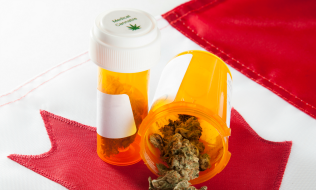

The government is implementing a new reimbursement policy for veterans claiming marijuana for medical purposes, reducing the allowance from 10 grams per day to three grams.
While the new policy establishes the three-gram limit, the government said there will be an exceptional circumstances process for veterans authorized for more than three grams per day that will ensure their health and well-being through consultation with relevant medical specialists.
The policy change, which will take effect from May 21, 2017, comes a few months after an auditor general’s report found medical marijuana has become the highest-cost item paid for under the drug component of Veteran Affairs Canada’s benefits program and that the department expects expenditures could reach $25 million in the 2016-17 fiscal year — almost a third of the drug costs under the plan.
Read: Veterans Affairs urged to better manage drug plan, marijuana costs
“In March of 2016, I was surprised to learn that Veterans Affairs Canada did not have a policy on marijuana for medical purposes,” said Kent Hehr, minister of veterans affairs and associate minister of national defence, in a statement. “I tasked my department with reviewing marijuana for medical purposes and this new reimbursement policy is the result.”
The department has been covering the costs of medical marijuana for the past seven years at an approved coverage of 10 grams per day, per veteran, which the auditor general said is double the amount identified as being appropriate in Veterans Affairs’ consultations with external health professionals, and three-times the amount Health Canada has reported as being commonly used by individuals for medical purposes.
Mike Blais, president and founder of Canadian Veterans Advocacy, says he understands the government’s reasoning for including the medical community in its consultations, but calls the new limit disingenuous. “To compare a man who has lost his legs, his mind or his soul to the average Canadian and say three grams a day is fine, that’s ludicrous.”
Read: Most Canadians support Shoppers’ bid to sell medical marijuana
The government consulted with veterans, their advocates, stakeholders and medical experts and reviewed existing research on using marijuana for medical purposes to develop the new policy. Blais was responsible for putting together the beneficiaries committee, gathering 10 veterans from across the country to speak about their experience.
“I don’t think they once said, ‘What do you think of a three-gram restriction?’ or any restriction whatsoever. There was no consultation,” he says. “. . . The whole review was generated by the auditor general’s report and the cost. It wasn’t about health and well-being . . . it was about cost. Today, they mitigated costs. They made a deal.”
Hehr said Veterans Affairs will continue to monitor developments in the field of medical marijuana and as new information becomes available, it will be flexible and make adjustments as required.
The new policy also establishes a rate of up to $8.50 per gram, which it calls a fair market value price. This rate is based on a review completed by Veterans Affairs Canada of the advertised prices for medical marijuana, including consultations with licensed producers.
Read: Medical questions, regulations create confusion for medical pot coverage
